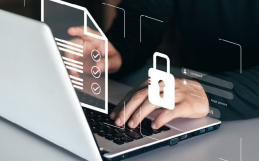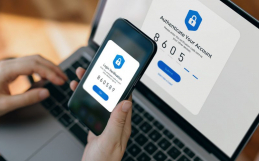Millennials, the hyper connected, notably transparent, and tech-savvy generation has made a significant impact on society by engineering the social media age, redefining social activism, and making it cool to live with your parents well into your mid 30s (thank you crushing student loan debt). While there is no concrete time period for millennials, the accepted timeline falls for those born between 1982 and 2004. Millennials, with their passionate personalities and “right now” mentality have created a demand for major technical changes in the form of Uber, Airbnb, Twitter, Smartphones, tablets, and of course… workplace technology.
90% of millennials prefer to choose when and where they work rather than being placed in a 9-5 position.
In recent years, Millennials in the workforce have caused a stir amongst older generations with their tech first (and often “me first”) approach. Generation Xers and Baby Boomers are sometimes characterized by a “punching the clock” mentality, which can clash with millennial’s flexible, work-life balance approach. Today, many millennial traits have shaped how productivity measured is analyzed and how IT companies design their IT systems and approach to workplace technology in general.
Tech-savvy
This is the most obvious millennial trait that has defined the entire generation. As the first generation to grow up connected to the world, millennials crave cutting edge technology at their fingertips, which puts pressure on organizations to deliver the newest smartphones, tablets, and laptops to their employees.
53% of millennials said they rather get rid of their sense of smell than their digital devices.
This can also be a plus for IT teams, however, since millennials typically are more willing to adapt to new technology and applications than baby boomers, allowing IT teams to change systems based on usability, ease of management, and price without worrying about stubborn employees who resist technical change. Also, since millennials typically browse the internet on their smartphone, websites and hiring sites that are not mobile optimized will likely get ignored.
87% of millennials use their smart devices as the primary means for connecting to the internet.
Desire to Collaborate
Millennials are team oriented. They enjoy not only working with teammates but also building friendships with their co-workers. This has been a rising change for businesses that create open concept offices and build collaboration spaces.
60% of meetings happening in companies today are virtual.
Kids in the late 80s and 90s grew up in an education system that promoted group projects and peer work, and this team-first approach has stretched into their adult minds as members of the workforce.
On the technical side, IT teams have had to adapt to this need by utilizing modern instant messaging applications that allow for easy file sharing and group chats. Programs like Skype for Business and Cisco Jabber appeal to millennials as they allow them to connect and collaborate with other employees quicker and more effectively. Millennials also highly prefer cloud based workplace technology, as they need to connect and collaborate instantaneously with their peers.
Impatient
This is perhaps the most notable Millennial habit for older generations. Millennials need to act now. This point is noted in the recent surge of on-demand services like Amazon Prime, Uber, and Netflix that provide consumers what they want instantly with only a few clicks of a button. This quality has also been seen in the decline of casual restaurants such as Applebee’s, Ruby Tuesday, and Kelsey’s in Canada where young people prefer “fast-casual” dining such as Panera Bread and other “cheap, but fast” establishments. In the office, however, impatient employees often can lead to security risks.
Many data leaks are caused by employees who simply couldn’t wait for IT to solve their problem. Many employees often prefer simple file sharing methods such as Dropbox or Google Drive, even though their IT teams say they are off limits. While not a nefarious notion, this form of shadow IT can be a big problem for IT departments. In response, IT teams have been deploying industry level file sharing solutions such as corporate Dropbox accounts, Citrix ShareFile, and Microsoft SharePoint that are familiar and easy to use. Another major change for IT teams is that millennials simply don’t care about breaking policy if they feel that it helps them get their work done and just won’t put up with inefficient and poorly designed workplace technology. Think about it, if your IT team creates a file sharing solution that requires a separate login and 6-10 clicks to use when Google Drive is only 2 clicks away, which one do you think they will use? In turn, IT teams must create very user friendly and familiar solutions, or young and hungry employees will find a way around them.
Connected
Millennials are the social media generation. In fact, 87% of millennials have a Facebook account and 41% update their information at least once a day. While not specifically an IT problem, millennials judge a company by their social media presence, and will often not interact with a company that has a poorly maintained LinkedIn account and 3 measly Google reviews. However, IT does need to understand that remaining connected with others is a huge part of the daily life for younger generations, and may want to think twice before they block Facebook and YouTube from their corporate networks.
Multi-taskers
Millennials are no one trick pony. They have no problem texting a friend while finishing up a project or tackling two work tasks at once. While Generation Xers and Baby Boomers may find this rude or impractical, this is simply a product of millennials growing up in a tech first world and having the means to concentrate on many tasks at once. IT teams can help with this by promoting mobile workplace technology that allows employees to complete tasks while on the go by offering company configured iPads and Microsoft Surface tablets while also making sure that workstations are set up to encourage multitasking. Most businesses today embrace a two-screen workstation, but how about three?
Open to Change
Just as being tech-savvy is a defining factor for millennials, stubbornness and a resistance to change are common traits associated with baby boomers. Baby Boomers are known for being set in their ways and resistant to new technology, processes, and overall change. Luckily for your IT team, millennials are just the opposite. Millennials understand the need for changing business models and new technology, and have no problem adapting their work methods should the situation arise. This allows IT teams to create new systems and processes without worrying about people resisting change, which is a huge plus for businesses today.
Within the next two years, millennials will represent the majority of the workforce, and successful IT teams will need to continue adapting workplace technology to their modern work styles. Overall, millennials have driven positive change in the office and time will tell what additional advancements will be made in the name of younger generations dominating the business space.






